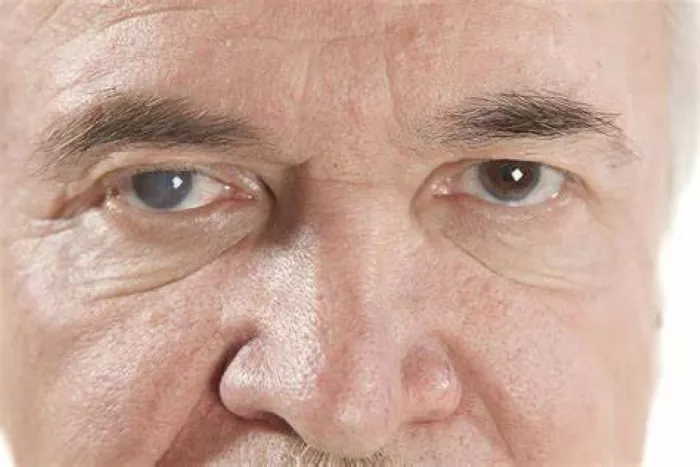Cataracts are a common eye condition that causes clouding of the lens, leading to blurry vision. While aging is the primary cause, certain factors can speed up their progression. Understanding what makes cataracts worse can help you protect your vision.
How Aging Affects Cataracts
Aging is the top cause of cataracts. Over time, proteins in the eye’s lens break down and clump together, creating cloudiness. While you can’t stop aging, knowing how it impacts cataracts helps you take preventive steps.
Sun Exposure and UV Rays
Too much sunlight can damage your eyes over time. Ultraviolet (UV) rays break down proteins in the eye’s lens, making cataracts form faster.
- Wear sunglasses with 100% UV protection.
- Choose wide-brimmed hats for extra shade.
- Avoid direct sunlight during peak hours (10 AM–4 PM).
Without protection, UV rays speed up cataract development.
Smoking and Alcohol Use
Smoking introduces harmful chemicals into your body, increasing oxidative stress in the eyes. This damages lens proteins and accelerates cataracts.
- Smokers are twice as likely to develop cataracts.
- Heavy alcohol use also contributes to faster cataract growth.
Quitting smoking and limiting alcohol can slow cataract progression.
Poor Diet and Nutrition
A diet lacking key nutrients weakens eye health. Antioxidants like vitamins C and E help protect the lens from damage.
- Eat more leafy greens (spinach, kale).
- Include citrus fruits (oranges, lemons) for vitamin C.
- Add nuts and seeds for vitamin E.
A balanced diet supports healthy vision and slows cataracts.
Diabetes and High Blood Sugar
Uncontrolled diabetes leads to high blood sugar, which changes the eye’s lens structure. This causes “sugar cataracts,” a fast-forming type.
- Monitor blood sugar levels regularly.
- Follow a diabetic-friendly diet.
- Get regular eye exams if you have diabetes.
Keeping diabetes under control helps prevent rapid cataract growth.
Eye Injuries and Inflammation
Past eye injuries or infections can increase cataract risk. Swelling inside the eye (uveitis) also speeds up lens clouding.
- Wear protective eyewear during sports or risky activities.
- Treat eye infections promptly.
- Manage autoimmune conditions that cause inflammation.
Preventing eye damage reduces the chances of worsening cataracts.
Steroid Medications
Long-term use of corticosteroid drugs (like prednisone) can lead to steroid-induced cataracts.
- Use steroids only as prescribed.
- Discuss alternatives with your doctor if needed.
- Get regular eye checkups if on long-term steroids.
Reducing steroid use when possible helps protect your lenses.
Dehydration and Poor Hydration
Not drinking enough water leads to toxin buildup in the eyes. This can make cataracts develop faster.
- Drink at least 8 glasses of water daily.
- Limit caffeine and alcohol, which dehydrate.
- Eat water-rich foods (cucumbers, watermelon).
Staying hydrated supports lens clarity and slows cataract progression.
Lack of Regular Eye Exams
Ignoring eye health allows cataracts to worsen unnoticed. Early detection helps manage them better.
- Get a comprehensive eye exam every 1–2 years.
- See an eye doctor immediately if vision changes.
- Follow treatment plans if cataracts are diagnosed.
Regular checkups help catch and slow cataract growth early.
How to Slow Down Cataract Progression
While you can’t fully stop cataracts, these steps help slow them:
- Wear UV-blocking sunglasses
- Quit smoking and limit alcohol
- Eat a balanced diet with antioxidants
- Control diabetes and blood pressure
- Protect eyes from injuries
- Get regular eye exams
When to Consider Cataract Surgery
If cataracts severely affect your vision, surgery may be needed. The procedure replaces the cloudy lens with an artificial one. Most people recover quickly and see much better afterward.
Conclusion
Several factors can make cataracts worse, including UV exposure, smoking, poor diet, diabetes, eye injuries, steroids, dehydration, and skipped eye exams. By making healthy lifestyle choices and protecting your eyes, you can slow their progression. If you notice vision changes, see an eye specialist for proper care.
Related topics:
Can You Really Remove Cataracts Naturally?
Can Eye Drops Cause Cataracts? What You Need to Know
Cost of Having Cataracts Removed Privately: A Complete Guide


